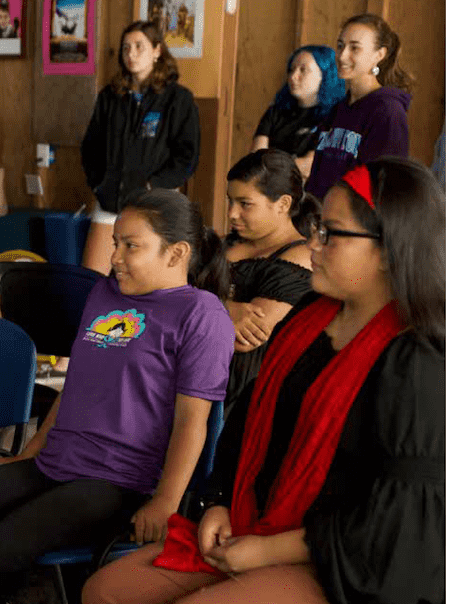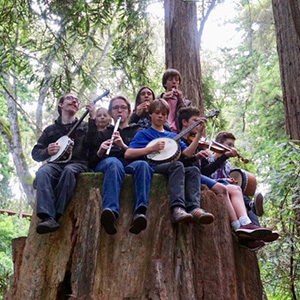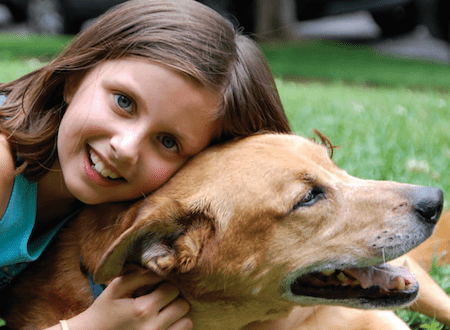When They Melt Your Heart
Teacher's Desk: September 2019
By Lisa Catterall
We were scared, but our fear was not as strong as our courage.
– Malala Yousafzai

Surely we digress. We were working very hard, painstakingly going over every single detail of a test the entire class failed. When this happens, it’s time to try again. We had spent a class and a half going through every problem asking every possible question, with me explaining it every possible way.
It turns out, this is a really good way to build trust. No one had anything in the gradebook for this test, basically, it was heading for the garbage and it was time for a do-over. Students understand, when you take the time to loop back around and re-do something, that you actually care that they learn it.
With 10 minutes left in the class, they suddenly got distracted and seemed to need an attitude break. They started talking about who was coming back next year to teach and learn at our school.
I took a deep breath and went ahead and shared my feelings with them about the things they were talking about. I shared my deep passion for our school and for the opportunities they were being offered, about ways I could see the institution growing, and about how important it all was for me. I may have shed a tear, I’m not sure.
Usually digressions like this are to be avoided; part of a teachers’ job is to simply rein in the conversations and keep the class on track.

At that time, the exhaustion and frustration about spending so much time learning things that are really difficult, and the passion the kids seemed to need to release, moved me.
Later in the day, I saw the students again for a class on another topic. It was almost time to go home, and I didn’t realize it, but they started to test me a little bit. A swear word slipped out. I calmly reminded the student not to use that language in a classroom. We had just finished a documentary and they asked if they could share a video with me in the last five minutes. They started it. There was a swear word, so I stopped it. Then they let the truth spill out. There was a music video “going viral,” and they were so passionate about it, and it meant so much to them, but they really, really wanted to share it with me. They were not sure they could because there were some “inappropriate” things in it.
Suddenly it dawned on me that without knowing it, these high school students were asking for adult guidance. Adults are always shutting down teenagers who raise taboo subjects. I thought about what the consequences might be if I allowed something in a classroom that might not be appropriate, and weighed the insight that the kids really needed a grown-up opinion and might not have anyone else they trusted to share this with.
“OK, but I might have to turn it off if it’s too far out there.”
Seven minutes later, just after school ended, we were still in the room and I was definitely crying. The video was all about saving the planet. A rapper had gathered 20 of the most beloved singers and celebrities of this generation, some wonderful animation artists, and created a video about loving the earth and reversing climate change. There were several taboo moments with split-second flights into topics I would not delve into without parents’ knowledge, and there were a few swear words. But what the kids were holding so dear was the fun and lighthearted spirit of it, the gathering of so many powerful artists, and truly, the message.
Kids are scared of climate change, and terrified of their leaders doing nothing. I remember having nightmares about nuclear war growing up in the eighties; it was a terrifying and real threat then. We should never forget that our young people and children are just as scared as we were. Educators have really emphasized climate change and it is part of the Next Generation Science Standards. Whenever I teach a lesson on climate change that sinks in, the horrifying end of the lesson is always, “but will it stop?” and the awful answer is “I don’t know.”
This rap video ended on the same note, but really emphasized the potential to make a change and to make the world a better place. And it was fun, and cute, and full of little ways to rebel against the adult world, which to young people, seems to be utterly failing them.
“This finally says all this stuff in a fun way,” explained one student.
“Yeah, and it’s hopeful. It’s totally going viral. EVERYONE is watching it.”
“Yeah but I saw someone watching it while they were using a disposable straw. HYPOCRITE!” Everyone laughed.
For as long as schools have existed, educators have been planting seeds, hoping to make a difference. When the world takes a turn for the worse in some way, we question what we might have done to teach people better, or what the system might have done to serve our country better. Every single day teachers come to work, trying to find new ways to have kids understand the problems they will face. But more than anything else, we try to empower kids to solve those problems.
When the kids showed me that video, it was like the teaching of science and involvement and empowerment was finally coming back around to face me. They cared so much they took a risk and shared it with me. Thirteen years of planting seeds had grown into a tree that was bearing fruit. It was personal to me, and powerful.
And, like everything worthwhile that is produced from the life of a teacher, it all began with trust, and the freedom to teach. Some material and subjects, taken completely out of context, can be risky. Thank goodness most teachers feel that the risks of the profession are worth the reward of developing meaningful conversations and guiding students to become thoughtful and engaged citizens.
Lisa Catterall teaches STEAM, math, science, and art at Mount Madonna School. She has authored curriculum frameworks for California and Kentucky on arts education as a senior associate of the Centers for Research on Creativity. She is a former Middle School Director and the founder of a STEAM engineering program. After spending 14 years in biotechnology, she began her teaching career as a middle school math teacher in her mid-thirties. Lisa has five children and has lived in Santa Cruz County for most of her life.







